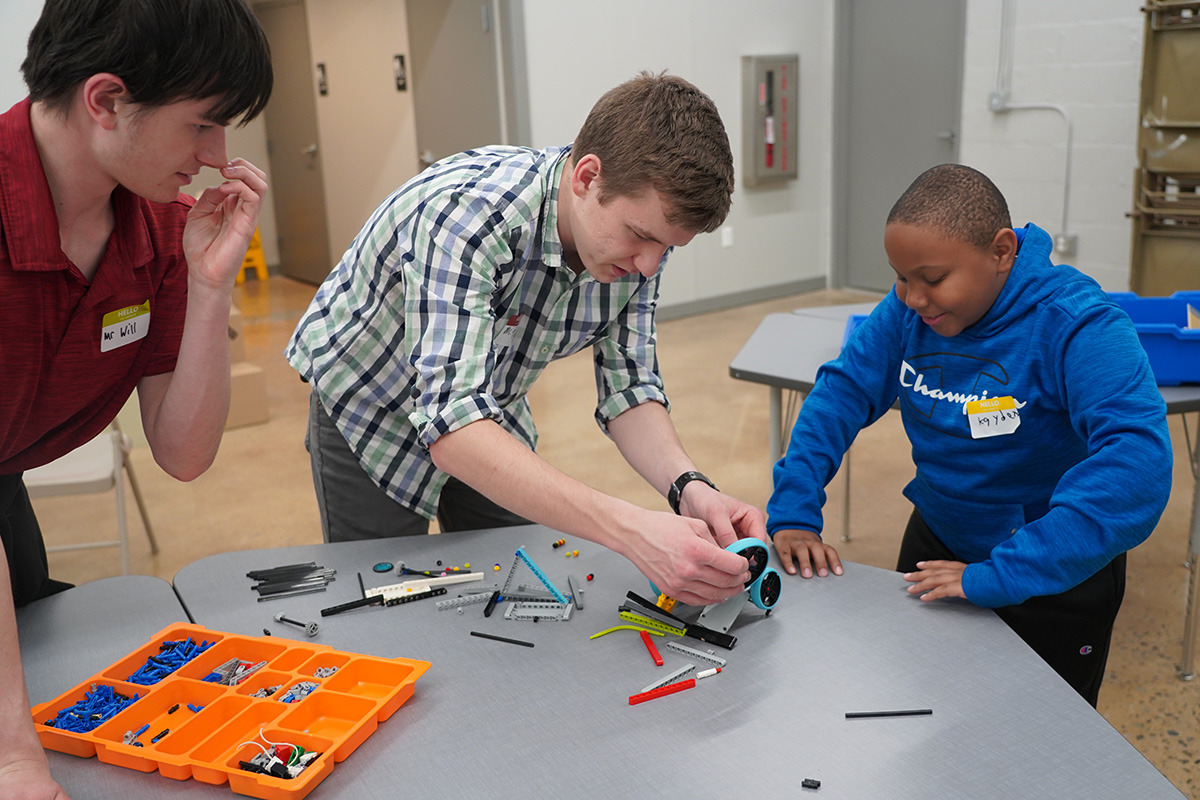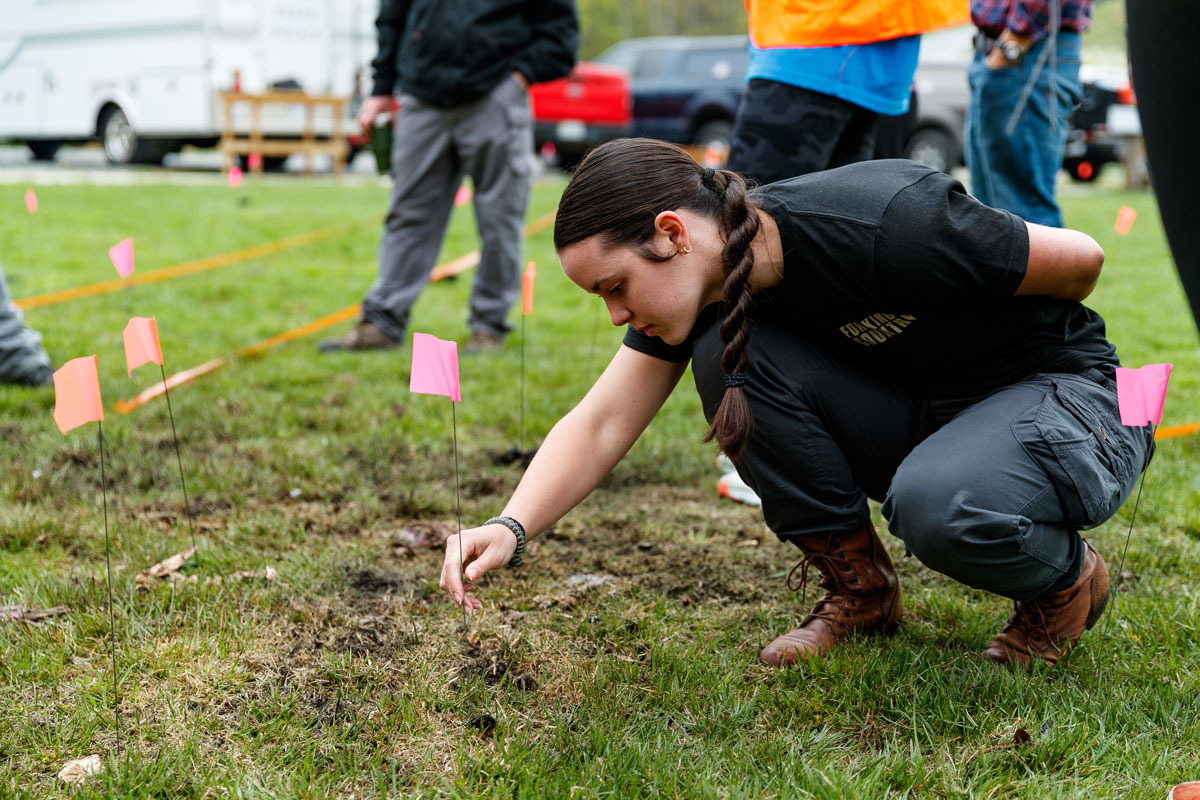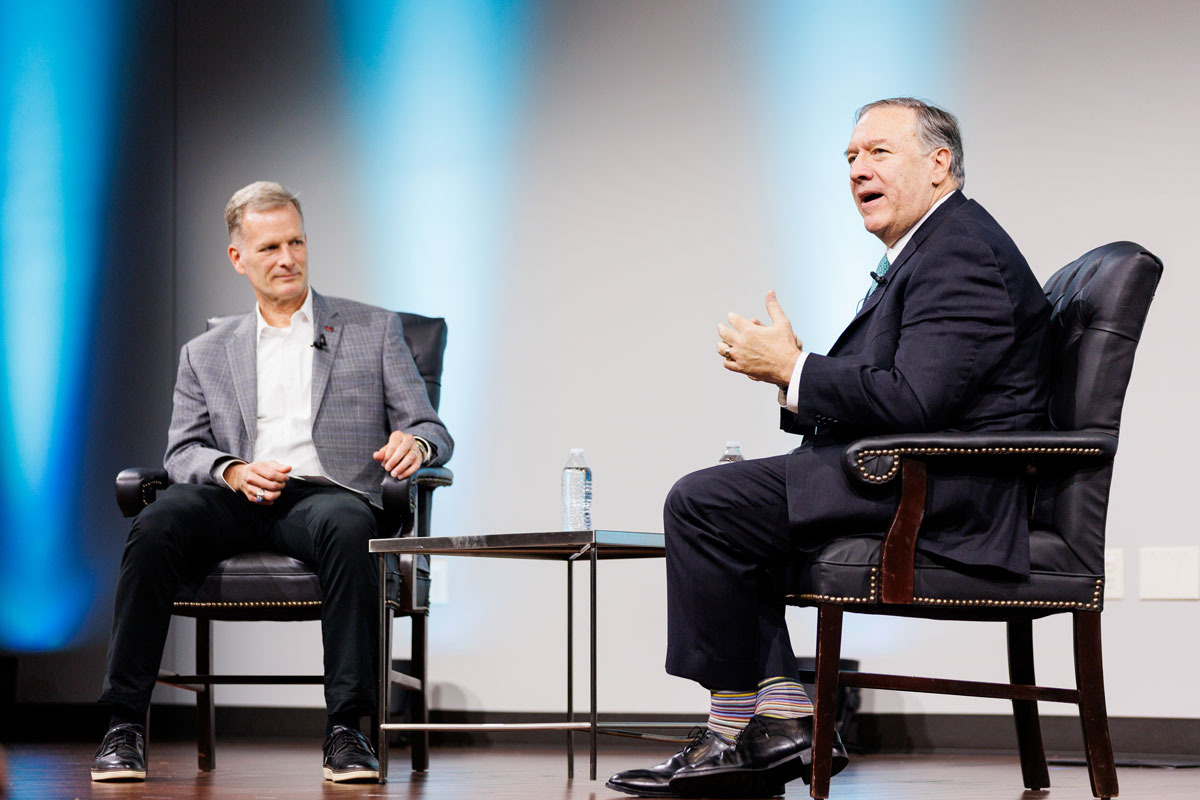Search News Archives
Filter News Articles
Additional Navigation
Liberty criminal justice students mentor juveniles in local detention center
May 6, 2020 : By By Logan Smith/Liberty University News Service

During her sophomore year as a criminal psychology student with a minor in criminal justice at Liberty University, senior Sophie Steele got a glimpse into the life of young people in need of guidance. As part of a life training skills and mentoring program for one of her criminal justice classes, Steele met juvenile delinquents where they were: inside the Lynchburg Juvenile Detention Center.
“It changed everything,” she said of her first experience at the detention center. “I was really able to see the faces of the people whom I would eventually be interacting with in my career field.”
Most juvenile inmates aren’t roughened villains with heinous charges on their records, as she found out. They are regular people with career, family, and education aspirations.
“They were not what I thought they would be,” Steele said. “The kids that I observed were just kids like us, talking and laughing. They had just made mistakes.”
Following mandatory training and signing consent forms, Liberty students in the program meet two to three times per month each Thursday evening to mentor juveniles in the facility’s classrooms or counseling rooms. Conversations range from dealing with conflict and anger management to performing basic life skills like daily planning and laundry.
Many inmates, who are between the ages of 13 and 21, are pursuing their GEDs, and some are even taking college courses online.
“The idea behind this is for our students to realize that those people in that institution are not different than them; they just didn’t have somebody at the right time to give them the love, care, and discipline they needed,” said Criminal Justice Professor Larry Presley, who has worked for the FBI and the NYPD for over 20 years and has led Liberty’s juvenile justice mentoring initiative for three years. “They want jobs, they want families, and they want an education. They aren’t very different, and that’s good for our students to realize that.”

Students in the Helms School of Government are frequently challenged with hands-on, practical job experience while in school. Presley sees the mentoring program as an opportunity for students to get a glimpse into their perspective career, whether they choose police work, juvenile justice, or another branch of criminal justice.
“The students get a reality check of what a juvenile detention center is really like,” Presley said. “The experience is an incredible one for these students.”
Visiting the juvenile justice center isn’t the only facet of the program. Students can also partner with Interfaith Outreach, a local nonprofit, to complete voluntary internships alongside professionals who help criminals return to normal life through reentry programs.
Interfaith works to coordinate regular daily activity for newly released prisoners, some of whom need drug treatment programs, dental and eyewear appointments, job search assistance, and more.
“Most of the people who get into prison are going to get out,” said Presley. “Interfaith Outreach is really where the rubber meets the road from the justice system.”
Presley’s program ended when classes were moved online in March due to COVID-19 restrictions, but it is scheduled to resume in the fall.


